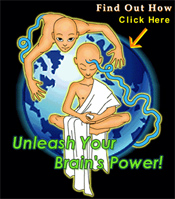Many mainstream articles and news sources uncritically report that stress, anxiety and depression are symptoms of modern society, while never raising the need to address the social ills that create human illness. While I agree with the claim that mood disorders may be symptomatic of modern society, I wonder if we have not wrongly focused on “pathologizing” the individual rather than the society. If depression, anxiety and stress are indeed emblematic of the rat race known as the “modern world/modern society,” is it not more appropriate and productive to “pathologize” and “treat” the society rather than merely the individuals who are reacting to it?
This calls for a total social transformation that will move us away from meaningless hyper-materialism and corporate-mediated living, toward systemic harmony and clarity.
However, organisms and species most likely to evolve and endure are those most able to adapt to their environment and grow to thrive within what was once potentially deleterious. Now, I would like to put forth an interpretation of adaptation that seems quite obvious and yet has not been the mainstream reasoning.
Neo-cons and corporate pundits read adaptation as destruction and plundering, but what it really means is to adapt to the environment, and thus thrive, by living in harmony with it. Thus, our relationship to the world and nature must be synergistic and not hierarchical. This is not a moral choice but a reality insofar as we are part of this meta-organism we call life, earth, the universe etc. What’s more, our interconnectedness with the natural environment is not a wacky, new age, feel good delusion, but pure scientific fact.
Undeniably, our physical existence is made possible through a feedback loop, in which we trade carbon dioxide for oxygen with plants and trees. When humans exhale we sustain the life of plants and, in turn, human life is sustained when plants exhale. This literally means that we breathe in concert with and through the natural environment.
Since we literally need the environment to live, adaptation necessarily implies a synergistic balance with nature, not its unbridled destruction. This is not to say that we cannot live off of it, for surely we must, but not to the extent that we kill it. Ultimately, any species that destroys the very environment it needs to survive can never be said to be adapting, so cannot be seen as the “fittest.” Yet, true to their disingenuous nature, the global corporate and financial elite would have us believe that they are destroying the world in order to advance it. However, after centuries of “Progress” it is painfully apparent that unbridled industrial, economic and corporate “growth” is adversarial to healthy human development.
In other words, the modern industrialized “Western” world is fundamentally at odds with real human (adaptive) needs and happiness. What is making us “crazy” is that at our core we are all deeply rational [1] beings with an innate sense of logic (and therefore justice), who reside in an irrational world. This relationship induces a mental “fissioning” and profound confusion within, thus facilitating a disconnect with and within the social order; resulting in social pathologies symptomatic of social anxiety in all of its forms. This mass cognitive dissonance makes the society crazy, while it ironically labels (and medicates) individuals as maladjusted to an insane world.
 If humans in the “Western” world are truly well adapted to the environment, why is there so much dis-ease? Were the trajectory of the modern age indeed the correct one for healthy physical, social and mental development (and for existence generally) there would not be such a preponderance of physical and mental illness. Despite (or perhaps because of) all our money, technology, and hyper-materialism, we are miserable. We are a species at odds with itself in a world gone mad, and we can all feel it. And we are duped into believing—through social pressures that create social pathologies—that this is the natural order of things, and that we cannot as socially disenfranchised “citizens” change our external environment. So, we turn to medications to cope.
If humans in the “Western” world are truly well adapted to the environment, why is there so much dis-ease? Were the trajectory of the modern age indeed the correct one for healthy physical, social and mental development (and for existence generally) there would not be such a preponderance of physical and mental illness. Despite (or perhaps because of) all our money, technology, and hyper-materialism, we are miserable. We are a species at odds with itself in a world gone mad, and we can all feel it. And we are duped into believing—through social pressures that create social pathologies—that this is the natural order of things, and that we cannot as socially disenfranchised “citizens” change our external environment. So, we turn to medications to cope.
We have become increasingly dependent on stimulants to make it through the day, and sedatives to make it through our nights. But what we need to realize is that we are not sick; society is (and in turn it has diagnosed individuals as sick). Thus to “feel better” we need to fix society and all its ills. This has to start and end with all of us! The State and its corporate allies/masters will never do it for us, because there are billions of dollars to be made in medicating citizens and keeping them docile and pliable; and also because a “bewildered herd” is easy to lord over. Social transformation, changing this mad world and creating something better is the only answer.
linkwithin_text=’Related Articles:’



Be the first to comment on "Mad World: Anti-Depressants Won’t Save Us, But Social Transformation Can!"